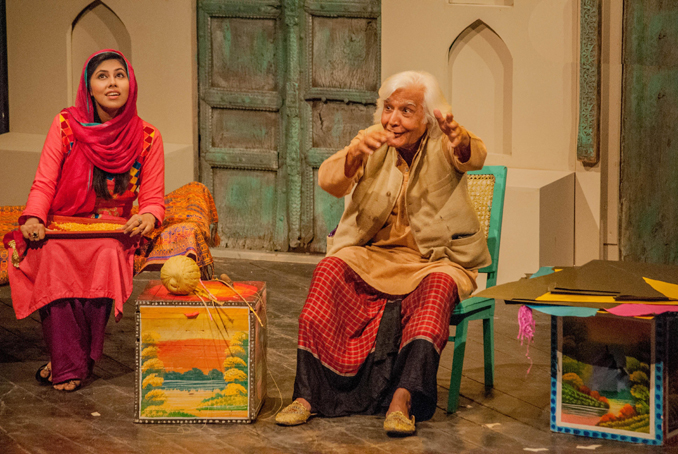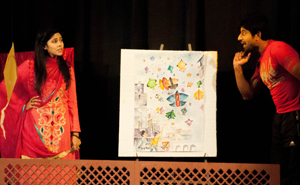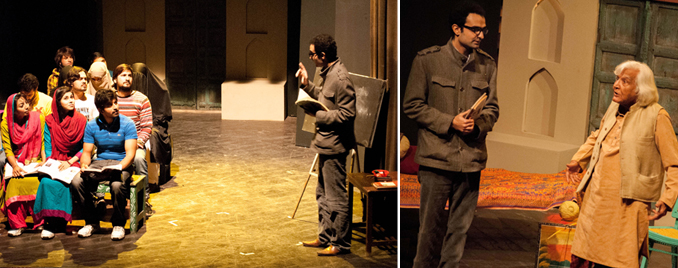
Written by: Salma Chaudhry - Posted on: March 14, 2014 |  Comments
Comments
Google Translation: اُردو | 中文
Spring has arrived. There was a time when in these days of the year you would find beautiful kites filling Lahore’s air with colors and splendour. Today, there’s no kite in sight as the authorities have put a ban on celebrating Basant. Lahori verve is tranquil and turbulent at the same time; there is chaos and then there is calm but this stable instability is what makes Lahore, Lahore. Traditions and norms, in their most distinguished shape have been conserved as such. The atrocities of time never seem to affect the vibrancy of the city for its inhabitants are as lively as ever. The life and activity of ‘androon shehr’ makes you fall in love with the capital of art and traditions which boasts an affable, unperturbed and homely ambiance; which brims with life, leisure, trade and cultural bustle. An attraction for all tourists, the ancient city offers some great architectural marvels and festivals to be witnessed and reminisced eternally. The people of the city just need a reason to celebrate and Basant or the kite festival was one of the most awaited events of the year; unfortunately, it was banned a couple of years ago.
Celebrations and festivals are an integral part of Lahoris’ lives; in the case of Basant, the affection for colours, meeting with relatives, the typical call of ‘Aaiiii Bo’, the scrumptious food and the whole Basant atmosphere is much missed by all. Ajoka Theatre’s play directed by Madeeha Gauhar was an effort to commemorate this most-celebrated event of the city on the arrival of Spring. It was an invigorating break from the customary sensational forms of communicating social messages.
 |
The play had its moments. The main character, Mauju, belongs to a family of traditional kite-makers whose business was affected due to the ban on Basant. But for him, now 80 years old and a grandfather of two, kite-making was more than just a business. It was his pride, his pleasure and to be precise, his life. He loved his kites just like a mother loves her child. The character was played by Arshad Durrani with such perfection that it took the audience back to the good old times when friends, neighbors and guests would get together for kite-flying encounters and cries of ‘bo kata’ would fill the air, a time when Basant was just another way to celebrate the diversity and plurality of Data ki Nagri. The play used some subtle and not-so-subtle humour to drive home the truth. With its various characters, brilliantly executed satire, typical Lahori accents and a commanding script, it was a poignant and engaging experience for all present.
 |
The story led marvelously into the characters of Mohalla Patang Saazan with some hard-hitting spoof on the extreme religious ideologues that now threaten to destabilize the country. Rubi and his young lover were seen discussing their dreams of becoming a painter and a musician but the Rok Thaam team would keep a check on them. The professor at the local college, played by Abbas Hussain, would be told by these fictional fundamentalists the ‘dos and donts’ of teaching, which also included a constant check on the college curriculum where it was not permissible to teach history and critical thinking was considered as something utterly undesirable.
 |
The set designer had done a stupendous job in creating a typical Lahori mohalla. In fact, it seemed as if it was a real locale. The beautiful melody ‘Lo phirr basant aayi’ did complete justice to the theme. The use of lights was perfect but it was really the performances of actors that took the play to an elevated echelon.
The characters evoked laughter, but the audience soon grasped that the joke was on them and the society at large, where we lament but don’t resist. ‘We need to stand up for our rights and for our culture,’ said Madeeha Gauhar while closing the play. A standing ovation followed for the cast, especially for 82 year old Mr. Arshad Durrani who had played the main character. The play did not propose any solutions but blatantly presented the truth that we normally prefer to shy away from, only because it does not concern us directly. The evening came to a stirring close with these Punjabi lines: “Lahore chhad k jaan waliyan nu Lahore kadi naen chhad’da”
All images have been provided by Shahbaz Aslam